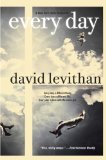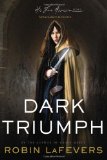 Every Day
Every Day
by David Levithan
Alfred A. Knopf, New York, 2013. 324 pages.
Starred Review
Here’s an innovative and creative idea, executed well, the perfect vehicle for commenting on the human condition as it is expressed in teenagers.
David Levithan sets up the situation beautifully in the first few paragraphs:
I wake up.
Immediately I have to figure out who I am. It’s not just the body — opening my eyes and discovering whether the skin on my arm is light or dark, whether my hair is long or short, whether I’m fat or thin, boy or girl, scarred or smooth. The body is the easiest thing to adjust to, if you’re used to waking up in a new one each morning. It’s the life, the context of the body, that can be hard to grasp.
Every day I am someone else. I am myself — I know I am myself — but I am also someone else.
It has always been like this.
“A” borrows other people’s lives for one day at a time. He’s never been the same person twice. He can access certain memories from the person whose body he’s in, though he doesn’t like to overdo that, but needs to do enough to get by. He stays in pretty much the same area as where he went to sleep, and always someone the same age as him, which is sixteen during this book.
I’m using “he” for convenience. That’s the way I think of him since he wakes up as a boy at the start of this book. But he wakes up as a girl as often as a boy.
From living lots of people’s lives, A has all kinds of insights into what it means to be a teenager. That’s the brilliant part of this book that truly shines.
On only page four, A meets Rhiannon:
As I take Justin’s books out of his locker, I can feel someone hovering on the periphery. I turn, and the girl standing there is transparent in her emotions — tentative and expectant, nervous and adoring. I don’t have to access Justin to know that this is his girlfriend. No one else would have this reaction to him, so unsteady in his presence. She’s pretty, but she doesn’t see it. She’s hiding behind her hair, happy to see me and unhappy to see me at the same time.
Her name is Rhiannon. And for a moment — just the slightest beat — I think that, yes, this is the right name for her. I don’t know why. I don’t know her. But it feels right.
This is not Justin’s thought. It’s mine. I try to ignore it. I’m not the person she wants to talk to.
It throws off A’s carefully planned strategies when he keeps thinking about Rhiannon. He can at least e-mail her in every body. And then does he dare to hope that she is someone who might understand?
This book is full of great insights thrown in along the way. He talks about having siblings or not, being in a family that goes to church or not, relationships with family members, being able to tell his body is a mean girl by her friends’ surprise when he doesn’t make the cutting comment.
Here’s where he wakes up in the body of a drug addict:
There comes a time when the body takes over the life. There comes a time when the body’s urges, the body’s needs, dictate the life. You have no idea you are giving the body the key. But you hand it over. And then it’s in control. You mess with the wiring and the wiring takes charge.
That day it is all he can do to keep the body he’s in from going to get the drugs it so desperately wants.
Another day he wakes up in the body of a girl who’s written a suicide plan in her notebook, with a target date later that week. Here are his insights about that:
Some people think mental illness is a matter of mood, a matter of personality. They think depression is simply a form of being sad, that OCD is a form of being uptight. They think the soul is sick, not the body. It is, they believe, something that you have some choice over.
I know how wrong this is.
When I was a child, I didn’t understand. I would wake up in a new body and wouldn’t comprehend why things felt muted, dimmer. Or the opposite — I’d be supercharged, unfocused, like a radio at top volume flipping quickly from station to station. Since I didn’t have access to the body’s emotions, I assumed the ones I was feeling were my own. Eventually, though, I realized these inclinations, these compulsions, were as much a part of the body as its eye color or its voice. Yes, the feelings themselves were intangible, amorphous, but the cause of the feelings was a matter of chemistry, biology.
It is a hard cycle to conquer. The body is working against you. And because of this, you feel even more despair. Which only amplifies the imbalance. It takes uncommon strength to live with these things. But I have seen that strength over and over again. When I fall into the life of someone grappling, I have to mirror their strength, and sometimes surpass it, because I am less prepared.
I know the signs now. I know when to look for the pill bottles, when to let the body take its course. I have to keep reminding myself — this is not me. It is chemistry. It is biology. It is not who I am. It is not who any of them are.
But all those insights and observations are the frosting on the cake. A’s love story with Rhiannon is the heart of this story. And the question: Can he have a love story when he never knows which body he will be in the next day? How can he even make plans? Is this someone who can get to know him for who he truly is? But then, who is he, really?
I must admit that though the book is absolutely brilliant and beautifully executed, I thought the ending was a bit anticlimactic. In a way, I think David Levithan painted his character into too tight a corner. I would have liked a happy solution, but I can’t think of one myself. Now, I imagine a lot of teen readers will like this ending, and, actually, it’s a better ending than I probably could have come up with. So I’m not saying the ending is flawed — just warning readers it won’t necessarily leave you feeling happy.
Every Day does what great science fiction does best — lets you look at everyday life from a completely new perspective. Highly recommended.
davidlevithan.com
randomhouse.com/teens
Buy from Amazon.com
Find this review on Sonderbooks at: www.sonderbooks.com/Teens/every_day.html
Disclosure: I am an Amazon Affiliate, and will earn a small percentage if you order a book on Amazon after clicking through from my site.
Source: This review is based on a library book from Fairfax County Public Library.
Disclaimer: I am a professional librarian, but I maintain my website and blogs on my own time. The views expressed are solely my own, and in no way represent the official views of my employer or of any committee or group of which I am part.
Please use the comments if you’ve read the book and want to discuss spoilers!




















